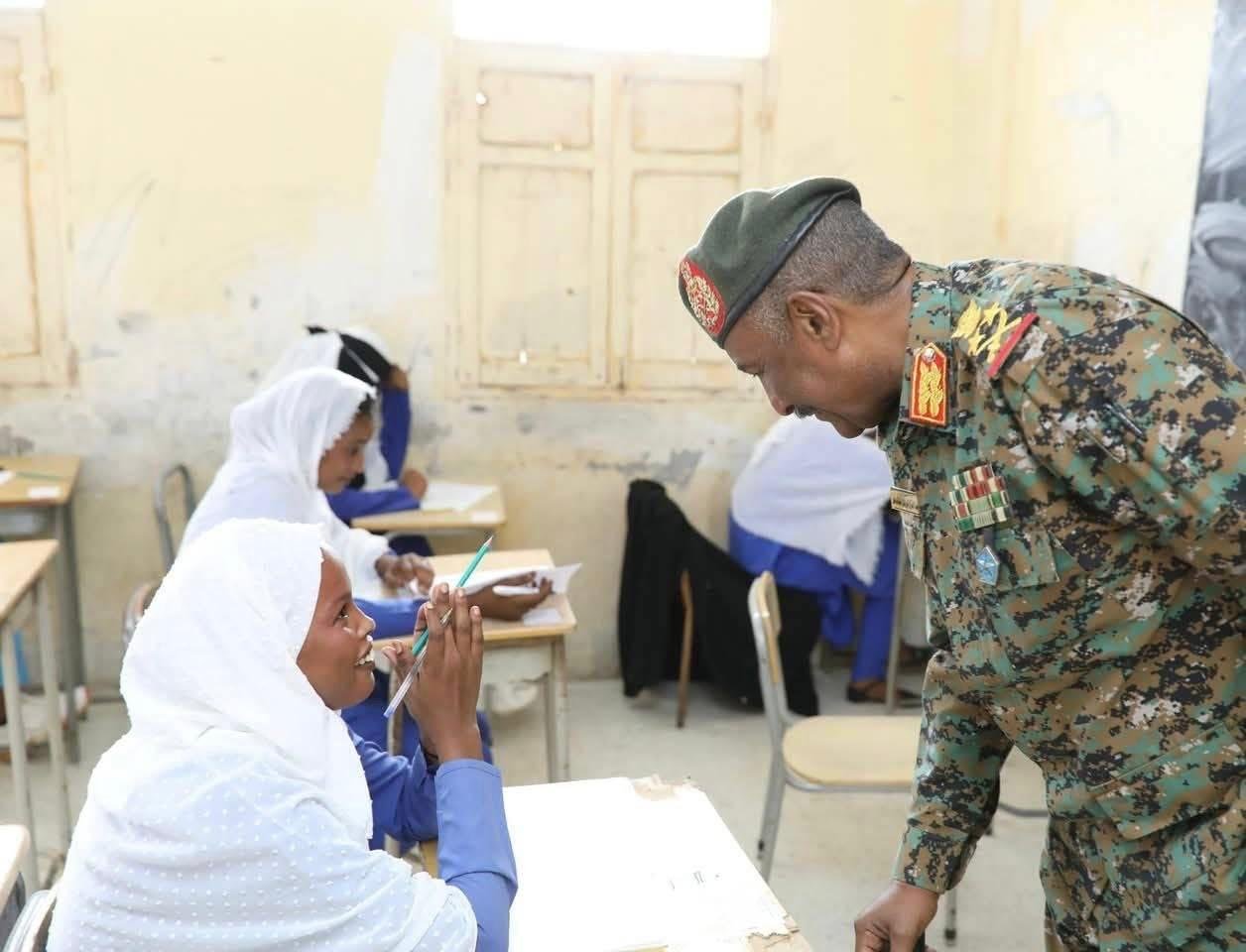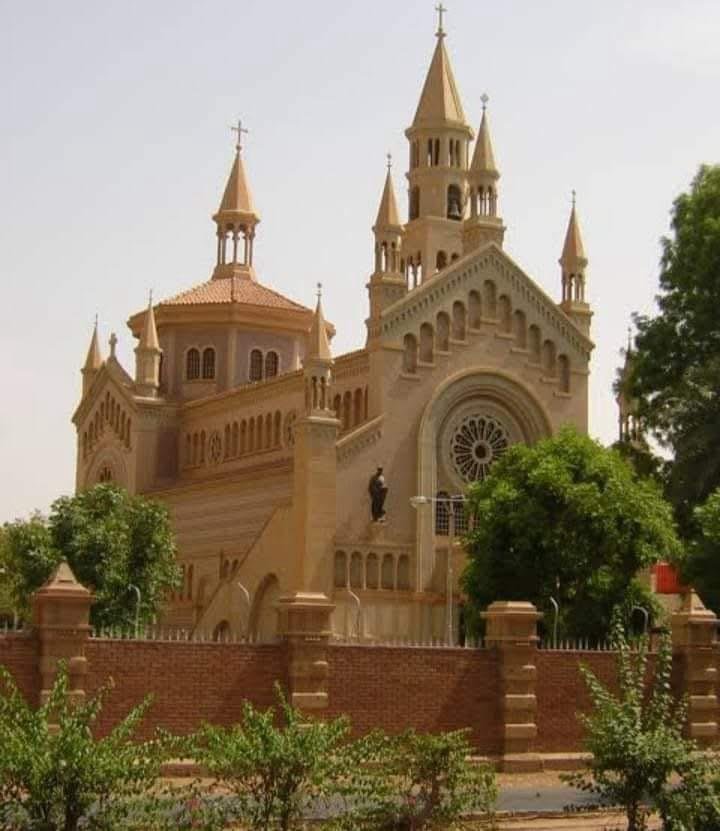Report: SPT
On Saturday, December 28th, the bells of schools in Sudan rang, signaling the start of the first session of the high school exams, which are necessary for university admission, after two years of halted educational activities due to the war.
However, the exams took place under different circumstances, as they were held in certain areas and not others—mostly in the eastern and northern states, with about 350,000 students participating, according to official statements from the Ministry of Education of the government in Port Sudan. However, unionists and education experts have expressed skepticism about this number. Other statistics suggested that the number of students who were unable to sit for the exams was greater than those who participated, many of whom were located in areas both within and outside of army control, primarily in the western and southern regions of the country.
The exams were fully conducted in the states of Red Sea, Kassala, Gedaref, River Nile, and Northern State, and partially in four other states. However, they could not be held in 10 states due to the ongoing war, which has spread to over 70% of the country’s territory.
Significant Absences:
A total of 244,000 students managed to attend the first session of the exams, both within Sudan and abroad, according to a press statement by Ahmed Khalifa Omar, the acting Minister of Education in the Port Sudan-based government. The exams were conducted at 2,239 centers inside Sudan and 59 centers abroad. The government reported that Sudanese students sat for the exams in Egypt and Uganda. However, Chad declined to host the exams on its territory—a claim the Chadian government denied, stating that it had not received any formal request from the Sudanese government in this regard.
Protests Over Denial of Exams:
The city of Al-Dalanj in South Kordofan witnessed student protests due to the delayed arrival of exam seat numbers from Kadugli, the state capital. Meanwhile, in West Kordofan, the state government announced the cancellation of the scheduled exams in Al-Nahud, which has become the administrative capital of the state. The decision was attributed to security concerns assessed by the Supreme Examination Committee.
Teachers’ Committee Objects:
The Sudanese Teachers’ Committee regarded the insistence on holding secondary school exams leading to university admission, despite the exclusion of more than 60% of the students expected to sit for them, as a grave indicator of the potential division of Sudan.
In a statement, the committee highlighted that the preparations for the exams were marked by “confusion and disorganization,” citing the non-issuance of exam seat numbers for a significant number of students in one area of Omdurman, north of Khartoum, in addition to the last-minute cancellation of exams in several regions.
The committee accused the government of dragging the country into “a quagmire that will be difficult to escape,” due to its insistence on proceeding with the exams under the current circumstances.
Teachers’ Union Joins the Crisis:
Amid Sudan’s current security challenges, concerns over the fairness of the exams are increasing. Reports highlighted instances of malpractice, such as the leaking of exam papers before they were administered. Other sources within the Ministry of Education in Port Sudan pointed to significant disorganization, including delays in distributing exam seat numbers and the allocation of examination centers, some of which are located dozens of kilometers away from students’ residences, making access challenging in light of severe transportation difficulties.
Sami Al-Baqir, spokesperson for the Independent Teachers’ Union, stated that the insistence of the de facto authorities in Port Sudan on holding the exams at this time, accompanied by poor organization, effectively deprived over 60% of students of their right to sit for them.
He explained that the union had previously proposed conducting comprehensive and equitable exams in coordination with international organizations, with both warring parties agreeing to a ceasefire and opening safe corridors to allow all registered students across the country to participate in the exams.
Warnings Preceded the Exams:
Sudanese civil forces, led by the Civil Democratic Forces Coordination (Tagadum), had warned against holding exams amid ongoing conflict, noting that the move could threaten the country’s unity. Similarly, on December 21, embassies of Canada, Germany, and the United Kingdom in Sudan expressed concerns that holding secondary school certificate exams in select regions of Sudan while excluding others could exacerbate educational disparities and deepen inequalities among children in the country.
They also voiced apprehensions about the risks tied to unsafe student travel across conflict zones to reach examination centers.
Schools Bombed by Airstrikes:

The persistent aerial bombardment of schools by the military’s warplanes has significantly compounded the challenges of conducting exams across Sudan, causing extensive damage to the education infrastructure.
On December 17, military aircraft destroyed the “Abuja Girls’ School” in Block 2 of the South Al-Hizam area in Khartoum, leaving the school in ruins. The attack demolished classrooms, offices, the prayer hall, and the theater, turning the facility into a pile of rubble.
Similarly, on December 6, an airstrike targeted “Tabat Al-Sheikh Abdul Mahmoud School” in Al-Jazeera State, resulting in casualties and injuries.
On August 14, 2024, five children were killed and 20 others injured following an airstrike on Al-Khansa Girls’ Secondary School in El-Obeid, North Kordofan. The attack also struck a crowded market.
Additionally, on March 14, 2024, a military airstrike hit a primary school in the “Al-Hadra” area of the Nuba Mountains region, killing four female students and eight male students instantly.
Two teachers also lost their lives in the attack, and numerous students and school staff suffered injuries, with most cases being critical.
Exams as a Step Towards Division:
The manner in which the Sudanese secondary school certificate exams were conducted has led many to perceive it as a step toward dividing the country geographically—separating the north and east from the south and west.
For example, 3,000 students residing in the Atash displacement camp, northeast of Nyala, were unable to take their exams. Media reports revealed that only 800 students managed to sit for the exams in the Abu Jubaiha City in western Sudan—a stark contrast to the total number of 8,453 registered students. Many could not attend due to the absence of examination numbers.
According to Fatima Qamar Ismail, the Minister of Education in South Kordofan, exams could not be delivered to 2,424 students in the Greater Dalanj district.
Furthermore, the Teachers’ Union reported that tens of thousands of students in eight states were denied access to the exams. Statistics from the Education Administration in North Kordofan showed that 10,000 students reached exam centers only to find their exam numbers missing.




